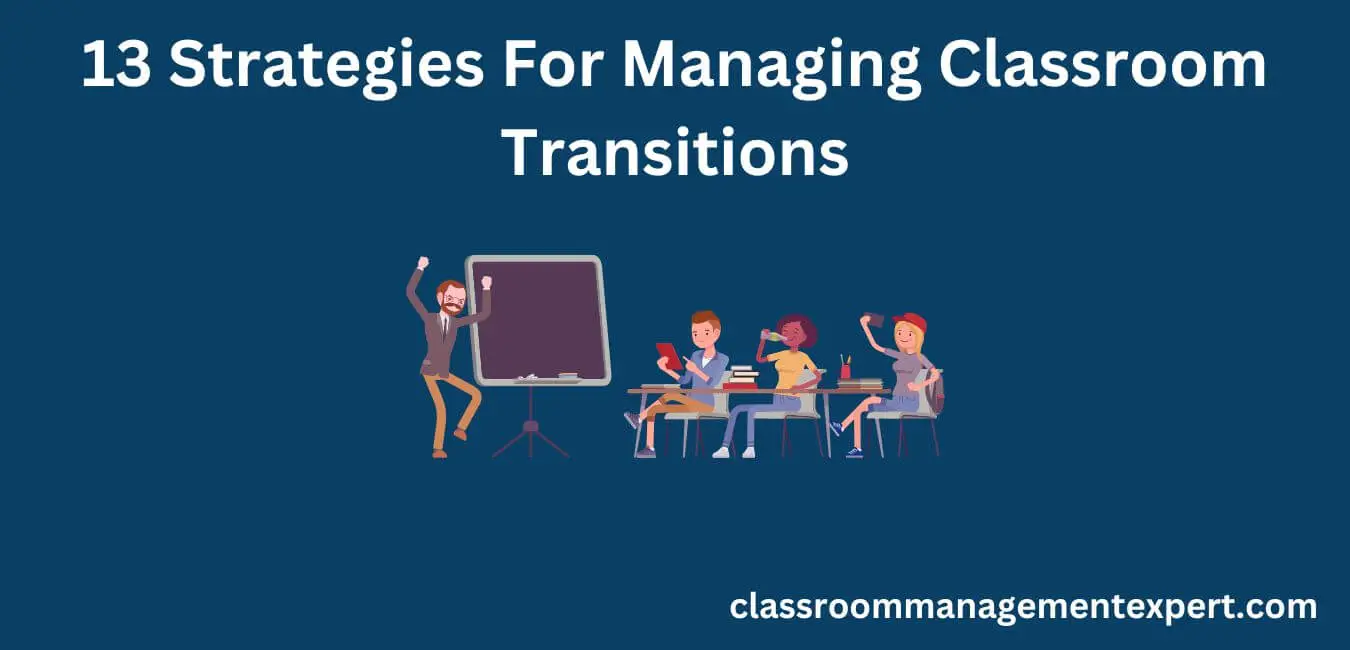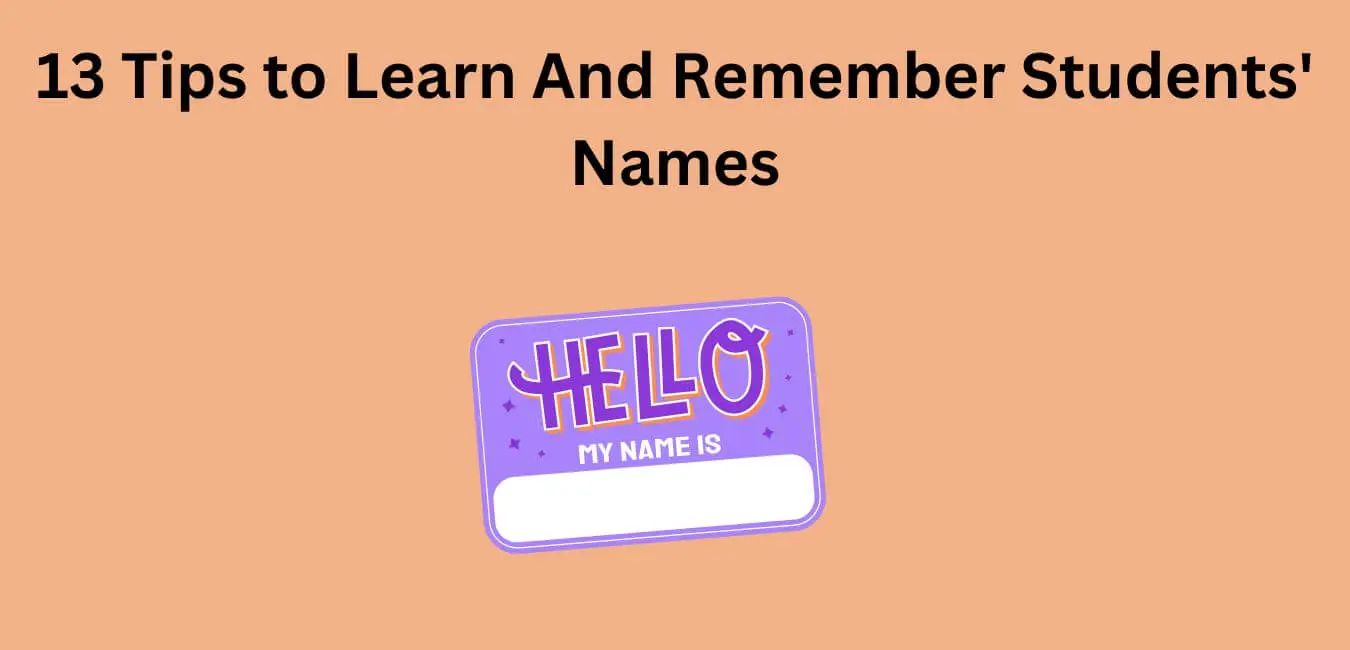There are many things that can help teachers improve their own teaching skills, but sometimes it can be difficult to find the time or motivation to do so.
In this article, we’ve compiled 19 simple tips that will help you to self-improve as a teacher.
By following these tips, you’ll be able to increase your effectiveness as a teacher and help your students achieve their goals.
Strategies to Help You Improve Yourself As A Teacher
The following are some of the techniques you can use to improve yourself as a teacher:
1. Start by analyzing your own behavior and working to improve upon it.
In order to be the best teacher possible, it is important to continuously evaluate your own behavior and work to improve upon it. This involves taking a close look at what you do well and what you could do better.
By doing this, you can identify areas where you may need to make changes in order to become a more effective educator. One of the benefits of self-evaluation is that it allows you to focus on your own strengths and weaknesses. It can also help you set realistic goals for yourself, as well as identify ways to achieve them.
Teachers who are willing to reflect on their own teaching practices and work to improve upon them are more likely to be successful in the classroom. This is because they are constantly looking for ways to improve themselves as better educators.
2. Be aware of your own strengths and weaknesses and use that information to help others.
As a teacher, it is important to be aware of your own strengths and weaknesses. This information can help you improve as a teacher by using your strengths to help others and recognizing your weaknesses and working to improve them.
For example, if you are good at math, you can help students with math problems. If you are not good at math, you can work on improving your math skills. This will help you become a better teacher overall.
Additionally, being aware of your strengths and weaknesses can help you become more self-aware. This is important because it can help you understand how others see you and how to better interact with them.
3. Take the time to reflect on your teaching methods and find ways to improve them.
Teachers often reflect on their teaching methods to find ways to improve their teaching practices. There are many reasons why taking the time for self-reflection is important for teachers.
First, reflection allows teachers to examine their own beliefs and assumptions about teaching and learning. This can help teachers identify any biases they may have and consider how these might influence their teaching.
Second, reflection provides an opportunity to critically examine one’s own teaching practice. By analyzing what works and what doesn’t work in your classroom, you can make changes that will improve your teaching. Finally, reflection helps teachers stay connected to their students.
By taking the time to think about how students are responding to your instruction, you can modify your teaching to better meet their needs. Reflection is an important part of teacher professional development and can help teachers become more effective educators.
4. Be patient with yourself; learning takes time and effort.
Teachers are always looking for ways to improve their teaching practices. However, many teachers find themselves struggling to make changes in their teaching. They may feel that they are not making the progress they want or that they are not doing things the right way.
This can lead to frustration and a feeling of being stuck. One of the biggest challenges in teacher self-improvement is learning how to be patient with oneself. It takes time and effort to learn new techniques and make changes in one’s teaching practice.
There are a few reasons why it is important to be patient with oneself when trying to improve as a teacher. First, it takes time to learn new things and master them. It is unrealistic to expect that teachers can change their entire teaching practice overnight. Second, making changes in one’s teaching is not always easy.
5. Never give up on your efforts to improve as a teacher!
Teachers are always looking for ways to improve their teaching. However, many teachers give up on their efforts to improve too soon. There are several reasons why it’s important to never give up on your efforts to improve as a teacher.
First, self-improvement is essential for professional development. Teachers who are constantly learning and growing are better equipped to meet the needs of their students.
Second, improving your teaching practice is often a challenging process, but it’s worth the effort. Teachers who persist in their efforts eventually see positive results in their classrooms.
Finally, never giving up on your efforts to improve sends a message to your students that you’re committed to their success and that you’re never too old or too experienced to learn new things.
Students need role models who are willing to take risks and challenge themselves in order to improve their teaching practice.
6. Set Goals: Establish what you want to achieve and how you will measure your success.
Goal setting is a great way to improve your teaching skills. Teachers who set goals for themselves typically have higher levels of self-efficacy and perform better in the classroom than those who do not set goals. There are many reasons why you should set goals to help you improve as a teacher.
First, goal setting can help you stay focused on your teaching objectives. When you have specific goals in mind, you are less likely to be distracted by other things that might occur in the classroom. Second, goal setting can help you to become more organized and efficient in your teaching.
By taking the time to plan out your goals, you will be able to create a roadmap for how you want to improve as a teacher. Finally, goal setting can help you track your progress over time.
7. Talk to other teachers about what works for them and ask for advice.
When it comes to teacher self-improvement, seeking advice from other teachers can be an extremely valuable tool. By talking with other educators, you can learn about new teaching strategies, approaches to discipline, and ways to connect with your students.
Additionally, hearing about the successes and failures of other teachers can help you reflect on your own teaching practice and identify areas in which you may need to improve.
One of the best things about seeking advice from other teachers is that you can tailor your conversations to fit your specific needs. If you’re looking for ideas on how to improve your classroom management skills, for example, then talking to a colleague who has a strong track record in that area can be very helpful.
Or if you’re struggling with getting students interested in learning, then speaking with a teacher who has successfully engaged students in their classroom may give you some valuable insights.
8. Join a professional development group related to teaching. Network with other teachers and learn from them.
Teachers are always looking for ways to improve their teaching practice. One way to do this is to join a professional development group related to teaching. Professional development groups can provide you with opportunities to learn from your peers and experts in the field. You can also gain access to resources that can help you improve your teaching.
Professional development groups can also help you build relationships with other educators. These relationships can be helpful when you need advice or feedback on a teaching issue. Additionally, these relationships can provide support during difficult times in your career.
So, why should you join a teachers’ professional development group? There are many reasons! Professional development groups can help you improve your teaching practice, gain access to resources, and build relationships with other educators.
9. Attend workshops and training on various aspects of teaching.
As a teacher, you may always be looking for ways to improve your teaching skills. Attending workshops and training related to teaching can be one of the best ways to do this. Workshops can help you learn new techniques, while training can help you stay up to date on the latest changes in the education field.
Attending workshops and training can also help you become more confident in your teaching abilities. You can learn new ways to manage a classroom and deal with difficult students. You can also learn how to use different types of technology in the classroom.
Workshops and training can also help you connect with other educators. This can allow you to share ideas and learn from each other. It can also help you build relationships that may lead to future collaborations.
10. Study different teaching methods and try out new strategies in your classroom.
Teachers always want to find new and innovative ways to help their students learn. However, sometimes it can be difficult to know where to start when it comes to improving your teaching methods.
One great way to improve is to study different teaching methods and try out new strategies in your classroom. This can help you find what works best for you and your students.
Additionally, it can also help you become more familiar with different teaching techniques, which can in turn make you a more effective teacher. So if you’re looking for a way to improve your teaching skills, studying different teaching methods is a great place to start.
11. Be open to learning new things and trying new approaches.
In order to improve as a teacher, it is important to be open to learning new things. In fact, there are many reasons why remaining open to learning can help you improve as a teacher.
First, if you are always learning, you will be better equipped to deal with new challenges and ideas in the classroom. Second, by constantly learning, you will become more knowledgeable about your subject matter and stay current on new teaching methods and strategies. Lastly, being open to learning allows you to reflect on your own teaching practice and find ways to improve your skills.
So, if you want to be an effective and successful teacher, be sure to remain open to learning new things!
Take the time to reflect on your own teaching practice. What works? What doesn’t work? Why?
12. Stay current in your field of teaching. Read articles, attend workshops/conferences, etc.
Teachers are always looking for ways to improve their teaching practices. One of the best ways to do this is to stay current in your field of teaching. Keeping up with the latest research, trends, and techniques can help you improve your teaching skills. You can also find new ideas and strategies to use in your classroom.
Staying current in your field of teaching can also help you to stay motivated. It can be inspiring to learn about new approaches to teaching and see the positive impact they have on students’ learning. By keeping up with the latest developments, you can keep your teaching practice fresh and exciting. This can help you to maintain your enthusiasm for teaching and keep students engaged in their learning.
There are many benefits to staying current in your field of teaching. Research shows that teachers who stay current in their field of teaching are more likely to be effective and efficient. Teachers who stay current in their field of teaching can also be more knowledgeable about the latest developments in their field, which can help them to improve their skills as a teacher.
13. Build positive relationships with your students. Make an effort to get to know them and their families.
One of the best ways to help yourself improve as a teacher is to build positive relationships with your students. When you get to know them and their families, you can better understand their backgrounds and what they are looking for in a classroom environment.
This understanding can help you create a class that is more suited to their needs and interests, which in turn will make teaching them more enjoyable for both you and your students. Additionally, when students feel appreciated and supported by their teacher, they are more likely to try their best and behave positively in the classroom.
Having good relationships with your students and their families helps you improve every aspect of your teaching.
14. Take the time to learn about each student’s background, interests, and goals.
Teachers are always looking for ways to improve their teaching skills. One way to do this is to take the time to learn about each student’s background, interests, and goals. This information can help you better understand your students and how to best help them learn.
You may find that some students have particular skills, interests, or goals that you can teach better than others. For example, a student who is gifted in math might need extra help with the writing process. A student who enjoys reading might welcome an activity that helps her learn to read.
15. Be patient with your students. Remember that each student has their own learning style and that they may need time to learn a new concept.
You should be patient with your students because each student has a unique way of learning. In order to help yourself improve as a teacher, you must first understand your students.
Some tips to help you become more patient are to take breaks, relax, and breathe. Remember that it takes time for students to learn, so be patient and continue to help them in their journey of education.
16. Be a role model: Be a role model for your students.
When you become role models for your students, you are setting an example for them to follow. You are teaching them how to be good people and how to be successful students. When you become positive role models for your students, it helps you to better connect with them.
That will help you better teach them and motivate them to learn. That is, by being positive role models, you become better teachers for your students.
17. Stay positive: Keep a positive attitude in the classroom.
When it comes to self-improvement as a teacher, staying positive is crucial. It can be difficult to stay positive when things get tough in the classroom, but there are many reasons why it’s important to try.
A positive attitude allows teachers to reflect on their own teaching practices and make changes when necessary. It also allows teachers to be more open to new ideas and approaches to teaching.
Furthermore, a positive attitude creates a more welcoming and supportive environment for students, which can help them learn better. Finally, staying positive allows teachers to maintain their energy and enthusiasm for teaching, which is essential for keeping a classroom motivated.
18. Take care of yourself: eat well, exercise, and get enough sleep.
Self-improvement is an important factor for any teacher. By taking care of yourself, you set the example for your students that it is important to take care of oneself in order to be successful. There are many reasons why taking care of yourself helps improve your teaching.
Self-care allows you to have more energy and be more positive in your classroom. A positive attitude is contagious and can help encourage your students to do their best. When you are well-rested and have taken the time to relax and recharge, you will be more effective in the classroom.
Another reason self-care is important for teachers is that it can help reduce stress levels. High-stress levels can lead to decreased productivity, poor decision-making, and health problems. Taking time for yourself allows you to decompress and clear your mind so that you can focus on teaching effectively.
For example, when you’re well-rested, fed, and have taken some time for yourself, you’re better able to focus on your students and what they need from you. You can be more patient and understanding when things don’t go according to plan, and you can provide a more positive learning environment for your students.
There are many different ways to take care of yourself, but it’s important that you find what works best for you and stick with it.
19. Be a lifelong learner: Embrace change, experiment with new ideas, and never stop learning.
There are many reasons why being a lifelong learner can help you improve as a teacher. First, when you are always learning, you are constantly growing and expanding your own knowledge base. This makes you a more effective teacher, as you can share information with your students that are relevant and up-to-date.
Also, constantly learning keeps you open-minded and flexible, which are important qualities in any educator. Additionally, when you are a lifelong learner yourself, you set a good example for your students. Seeing their teacher taking an interest in learning new things and pursuing personal growth sends the message that learning is important and valuable.
Ultimately, being a lifelong learner helps teachers stay current and engaged in their field, which benefits both the educators themselves and their students.
Conclusion
Self-improvement is an ongoing process, and there is no one right way to do it. Teachers should seek to improve their practice on an ongoing basis by doing things that are effective, enjoyable, and relevant to them. By following the tips provided in this article, you can improve yourself and your teaching styles, methods, and techniques tremendously.



















